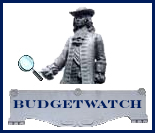- Home
- About
- News
- Tax Reform
- Ethics Reform
- Budget Reform
- Reformer’s Roundtable
- Contact Us







R.E.F.O.R.M. Agenda Can Help Make Budget Dollars Make Sense
 Philadelphians love to keep score and any Philadelphia sports fan who is waiting for the city’s next championship can tell you that results matter. But as readers of my commentaries understand, when it comes to the billions spent in the city budget, results don’t necessarily matter, and we do little as a city to connect the cost of government spending to the results that government spending creates. If we better connect what we spend with what that spending does, we can take a much better approach toward budgeting in Philadelphia. Citizens across Philadelphia understand this and that is why visitors to www.reformballot.org are demanding such changes as part of a R.E.F.O.R.M. agenda.
Philadelphians love to keep score and any Philadelphia sports fan who is waiting for the city’s next championship can tell you that results matter. But as readers of my commentaries understand, when it comes to the billions spent in the city budget, results don’t necessarily matter, and we do little as a city to connect the cost of government spending to the results that government spending creates. If we better connect what we spend with what that spending does, we can take a much better approach toward budgeting in Philadelphia. Citizens across Philadelphia understand this and that is why visitors to www.reformballot.org are demanding such changes as part of a R.E.F.O.R.M. agenda.
As candidates for Mayor and City Council court voters, an exciting effort allows reformers from every corner of the city to define the principles of a reform agenda. We will be able to collectively articulate what it means to be a reformer and then we will be able to judge from their responses, which candidates are for reform. Most important, this reform platform will be drafted and established not in some star chamber, but in an open dialogue with citizens made possible by modern communications technology. You will suggest elements for the reform agenda. You will edit the reform agenda. You will vote on the final form of the reform agenda. Finally, you will determine which candidates are reformers.
For more than a year, a Reformers’ Roundtable of individuals and organizations pushing for positive change in Philadelphia has been working to craft the outlines of a reform agenda that focuses on principles that affect how decisions are made in Philadelphia and how the public participates in those decisions. These principles do not reflect a discussion of the priorities of our government or the use of our scarce resources. We do not recommend increasing funding for a certain program or increasing staffing for another. Rather, we have set forth what we demand of our city government in terms of how it informs the citizenry about the work of its government and how it involves the citizenry in making governmental decisions. We have drafted the broad brushstrokes of this work in the form of a R.E.F.O.R.M. Compact between the citizenry and its government:
We, the citizens of Philadelphia, agree to bear our tax burden, abide by city laws and regulations, and accept all of the responsibilities of citizenship. We believe that Philadelphia deserves a transparent, accountable, and accessible government that works efficiently for all citizens, not just a few. I support the following R.E.F.O.R.M principles as an instrument of progress, hope, and trust.
- Restore credibility – end the corrupt culture of patronage and pay-to-play by instituting effective and enforceable ethics laws and regulations.
- Engage and enable neighborhoods – empower civic, school, and neighborhood organizations in zoning and all quality-of-life matters.
- Fight for fiscal responsibility – establish a city budget process that engages and empowers citizens and communities and holds service providers and contractors accountable for creating positive results.
- Open government to the people – provide the information citizens and communities need to engage transparently in the legislative process.
- Respect citizen input – demonstrate respect for the citizens and community by requiring meaningful citizen involvement in government decision-making processes.
- Modernize city services – adopt a comprehensive plan for development and objective benchmarks for the quality of city services.
Now it is up to Philadelphians to take this pledge. More important, it is up to Philadelphians to establish the elements of R.E.F.O.R.M. Agenda — the actions our local elected leaders should take to make reform a reality. Reformers should visit www.reformballot.org to review the action steps proposed by the Reformers’ Roundtable, to make any edits, and to suggest alternate actions.
Until April 4th, the reform agenda will exist in “wiki” form so visitors can make changes instantly as they can in Wikipedia. After then, all reformers who have signed onto the R.E.F.O.R.M. Compact will be able to vote on the principles comprising the final R.E.F.O.R.M. Agenda that will be presented to candidates for Mayor and City Council on April 15th for their consideration. Finally, on May 1st, we will unveil the candidates’ responses so Philadelphians can understand who is for reform — and who is not.
This R.E.F.O.R.M. Compact and R.E.F.O.R.M. Agenda will present the citizenry’s collective hopes and aspirations for what we want for our city, what we want from our city government, and what we ask of our elected officials. We will give the electorate the ability to not only influence who wins municipal elections, but the chance to choose the policies that will shape the city’s future after the elections. Most important, we will transform Philadelphia’s reform impulse into a sustainable reform movement. We can increase the likelihood that policies endorsed by the citizenry can define the courses of action we take as a city and establish a template against which to measure the progress of change in city government after the 2007 election.
